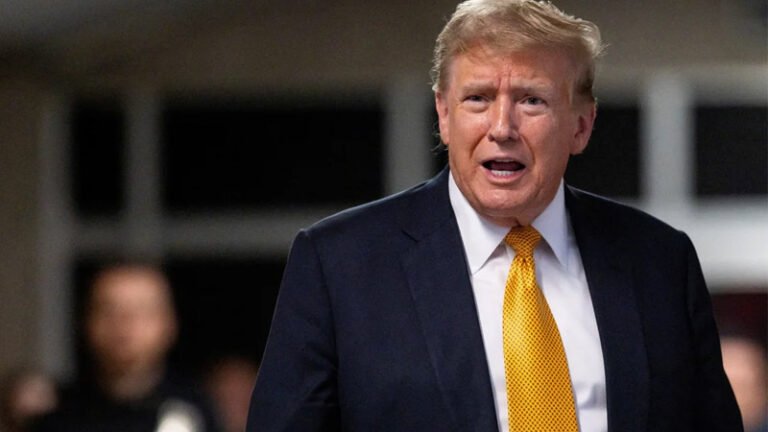Thirty-four Charges, 12 Jurors, One Often Exasperated Judge, and a Parade of Witnesses
After nearly five weeks, both the prosecution and defense have rested in Donald Trump’s historic hush-money case. Closing arguments are set to begin on Tuesday, after which the jury will start deliberations. The timing and outcome of their decision are uncertain. According to BBC
If Trump is found guilty on even one count, he would become the first former US president with a criminal conviction and the first major party candidate to run for the White House as a felon.
What Happens if Trump is Found Guilty?
Trump has been free on bail throughout the trial. Even if found guilty, he will likely be allowed to leave the court as a free man until Justice Juan Merchan schedules a sentencing hearing. In determining the sentence, the judge will consider several factors, including Trump’s age (77), lack of previous convictions, and potential violations of the court’s gag orders. The sentence could range from a fine or probation to prison time.
Trump would almost certainly appeal a guilty verdict, a process that could take months or longer. His legal team would then face the Appellate Division in Manhattan and possibly the Court of Appeals. This makes it highly unlikely that Trump would leave the court in handcuffs; he would probably remain free on bail during the appeal process.
Grounds for Appeal
One potential ground for appeal is the testimony of adult film star Stormy Daniels, whose alleged sexual encounter with Trump is central to the case. Anna Cominsky, a professor at New York Law School, noted that while Daniels’ detailed testimony might make her more credible, it could also be seen as irrelevant and prejudicial. Trump’s defense team twice called for a mistrial during Daniels’ testimony, but these motions were denied by the judge. As Reported by CBC
Another possible ground for appeal is the novel legal strategy used by the District Attorney. Falsifying business records is typically a lower-level misdemeanor in New York, but Trump faces more serious felony charges due to an alleged second crime: an illegal attempt to influence the 2016 election. Some legal experts argue that the lack of clarity regarding which specific law was broken could provide the defense with a basis to challenge the conviction.
Could Trump Go to Prison?
While it is possible that Trump could serve time behind bars if found guilty, it is highly unlikely. The 34 charges he faces are all class E felonies in New York, the lowest tier of felony charges in the state, each carrying a maximum sentence of four years.
Several factors could lead Justice Merchan to impose a lesser punishment, including Trump’s age, his lack of previous convictions, and the non-violent nature of the charges. The judge might also consider the unprecedented nature of the case and opt to avoid incarcerating a former president and current candidate.



